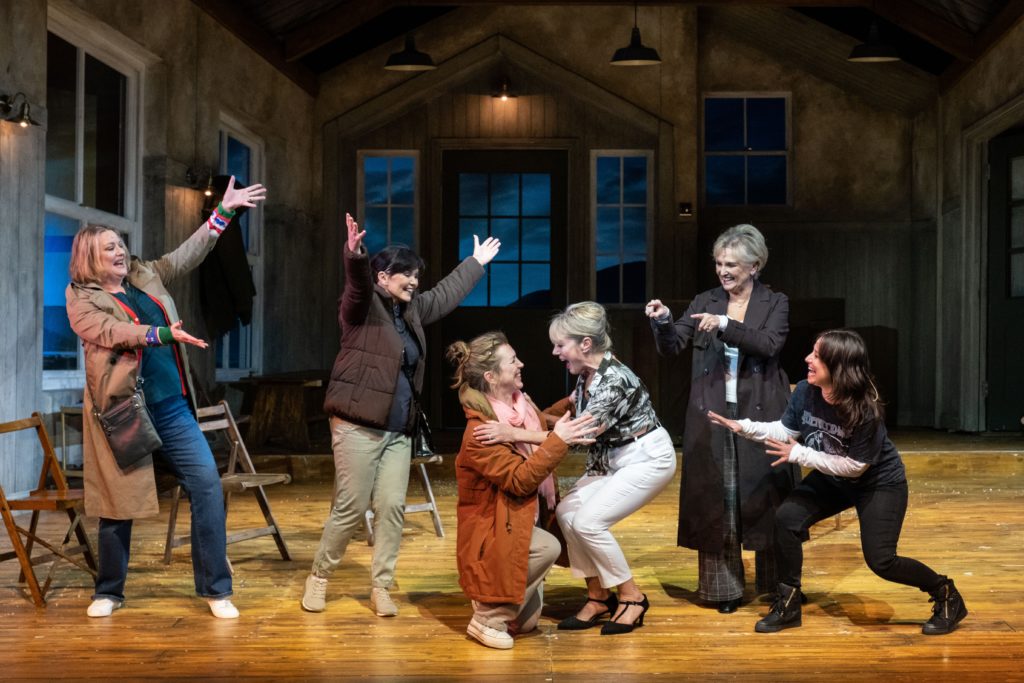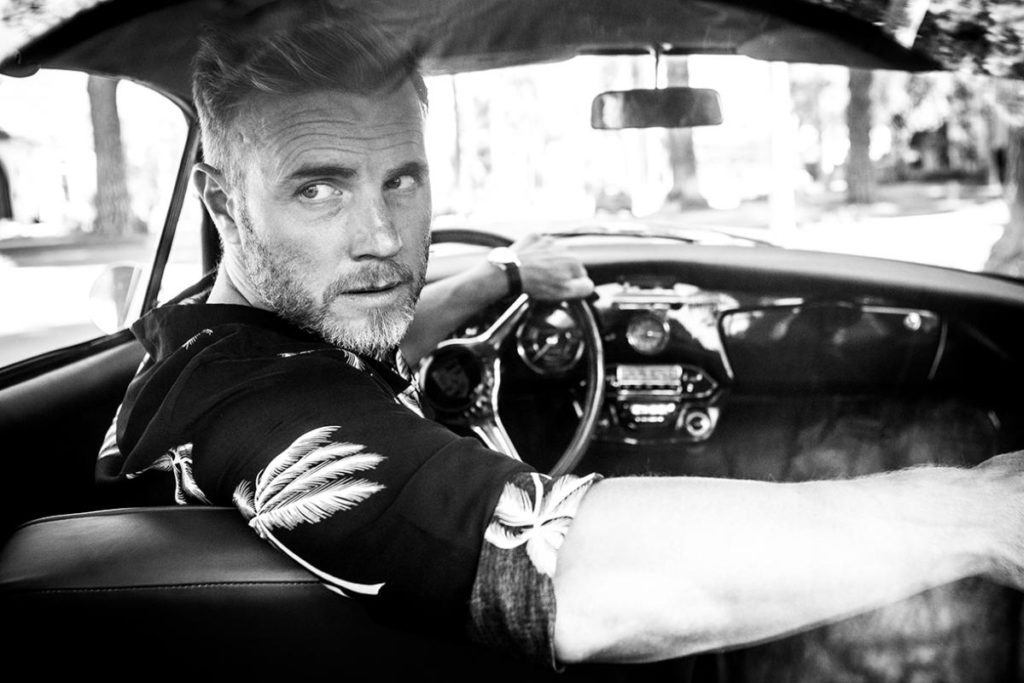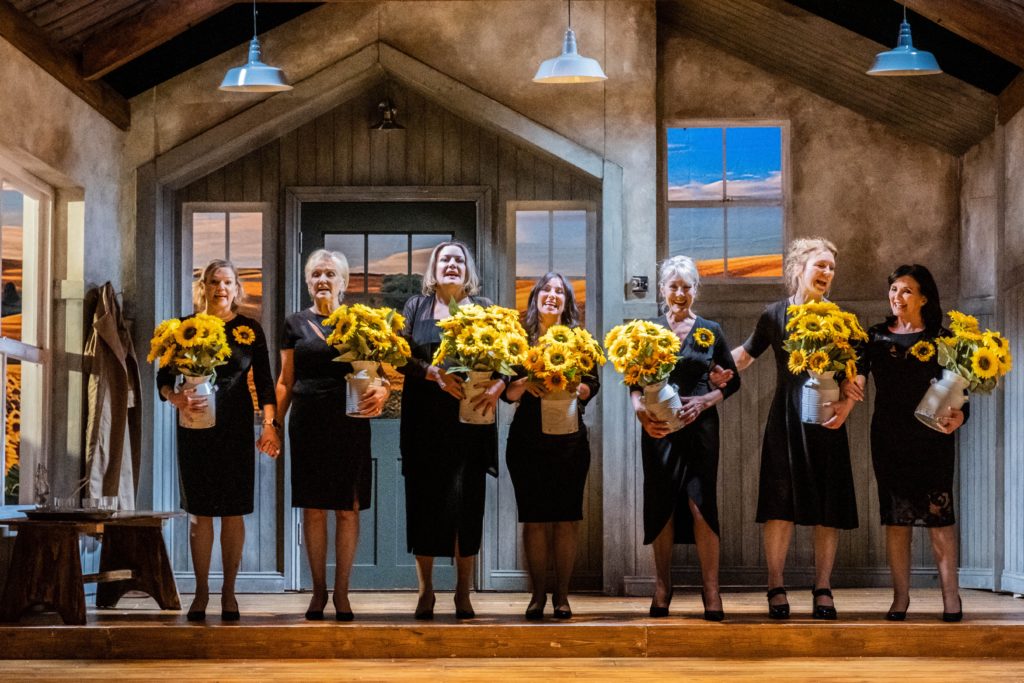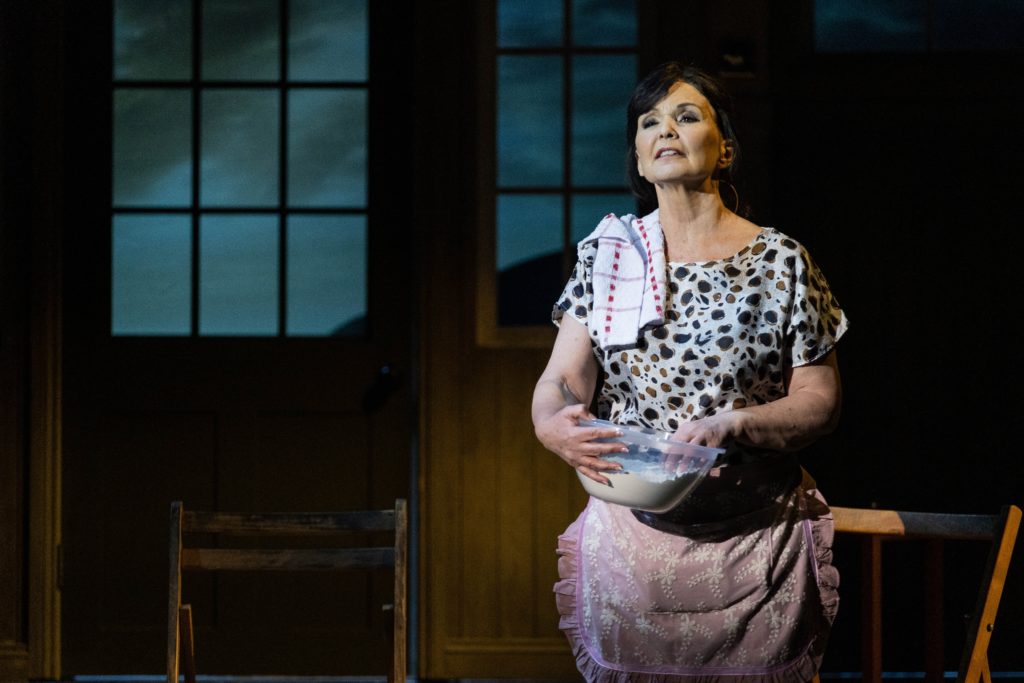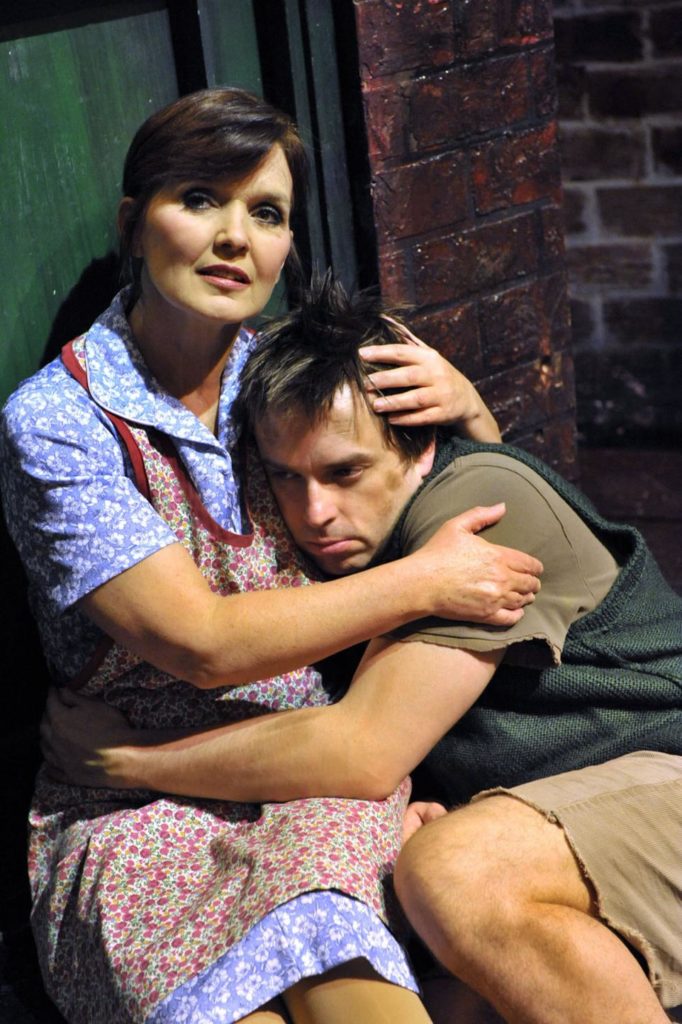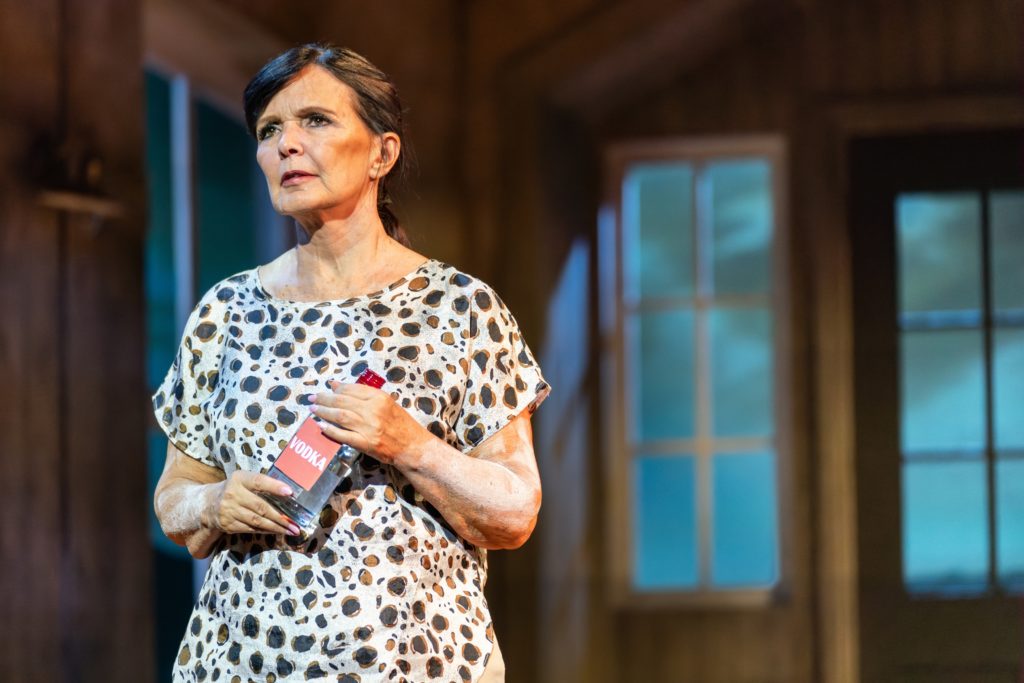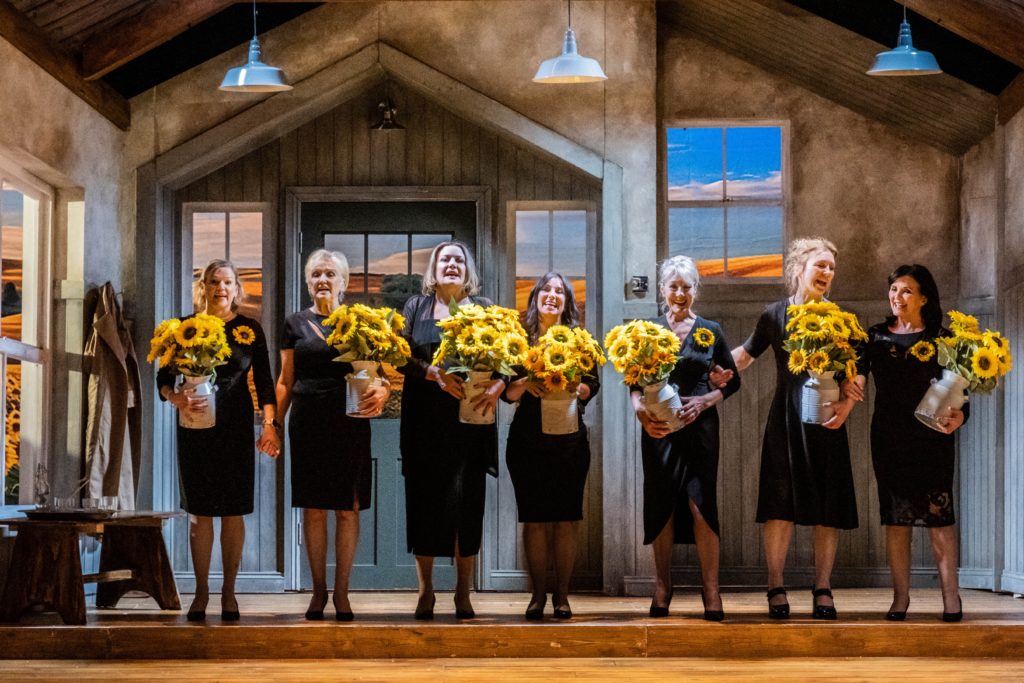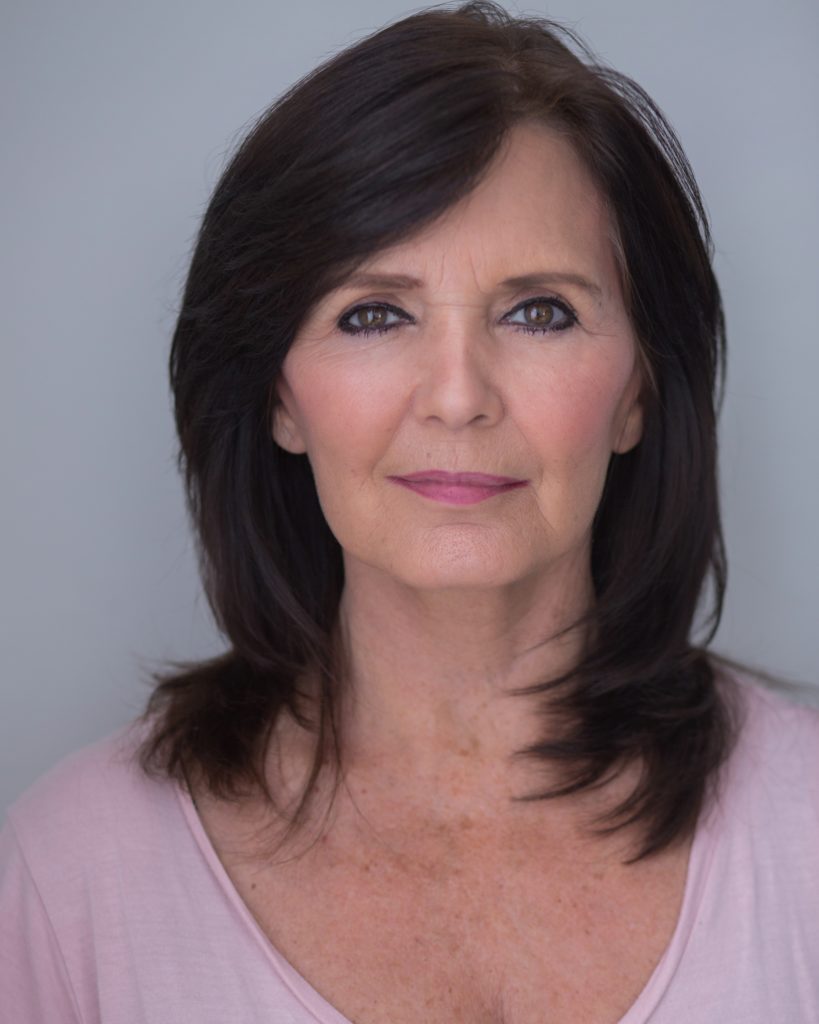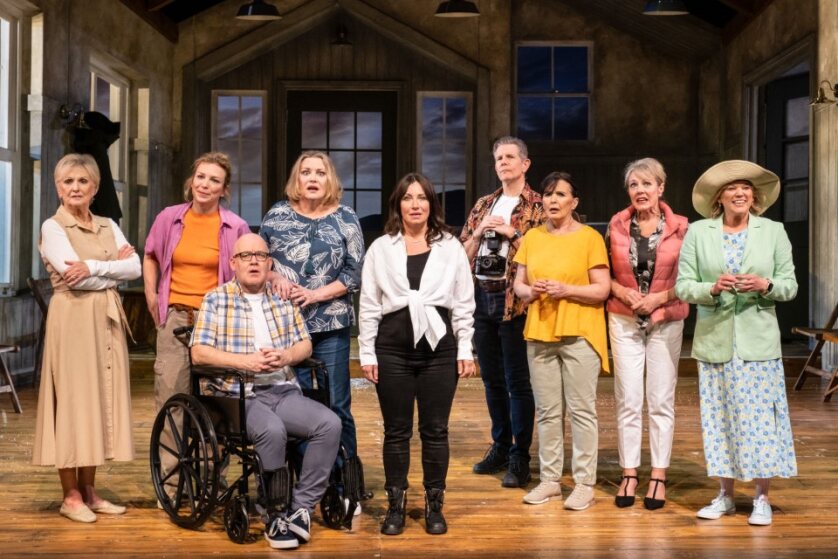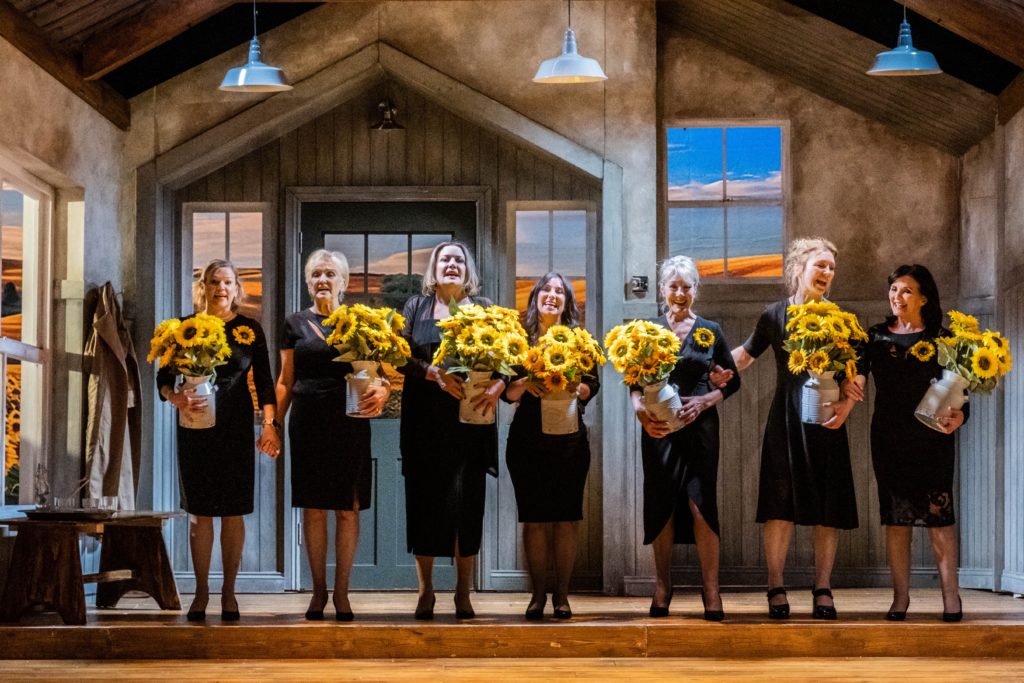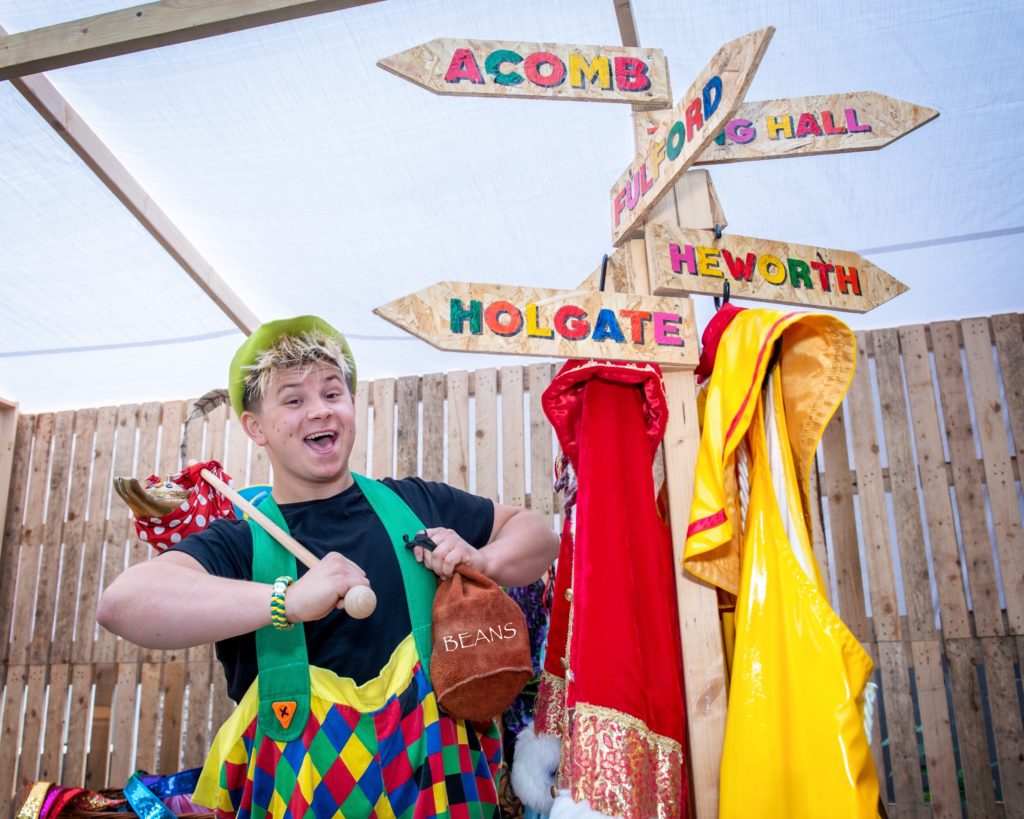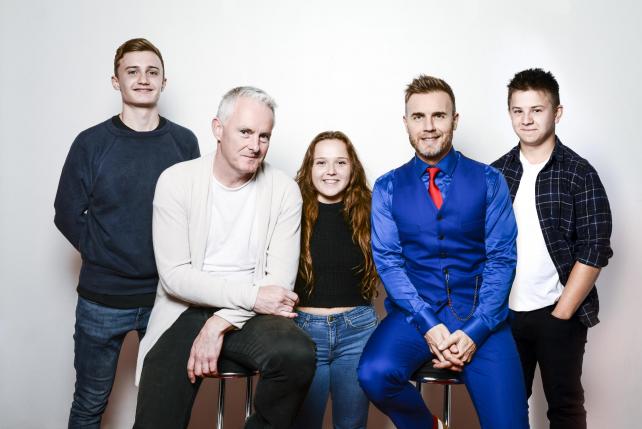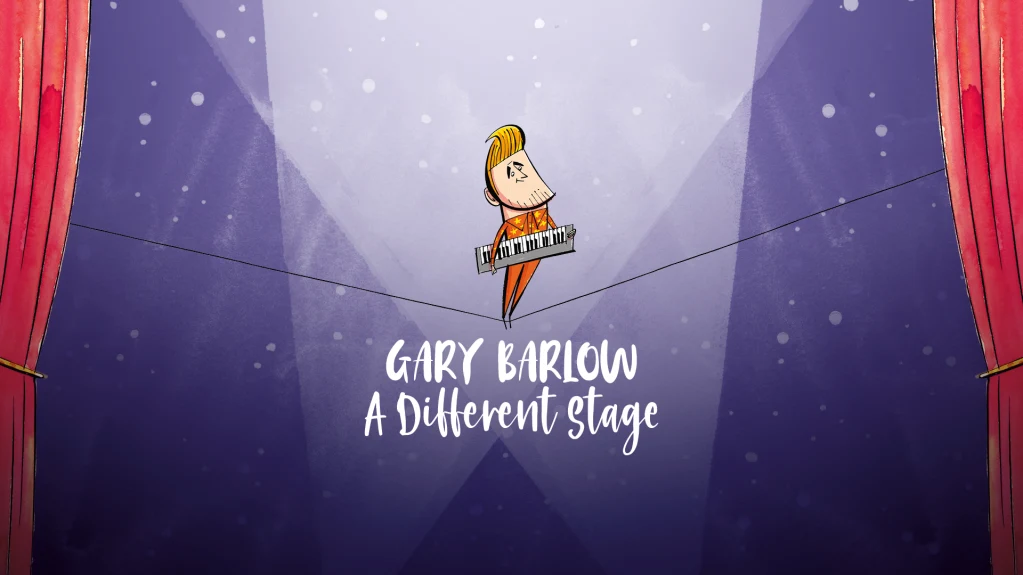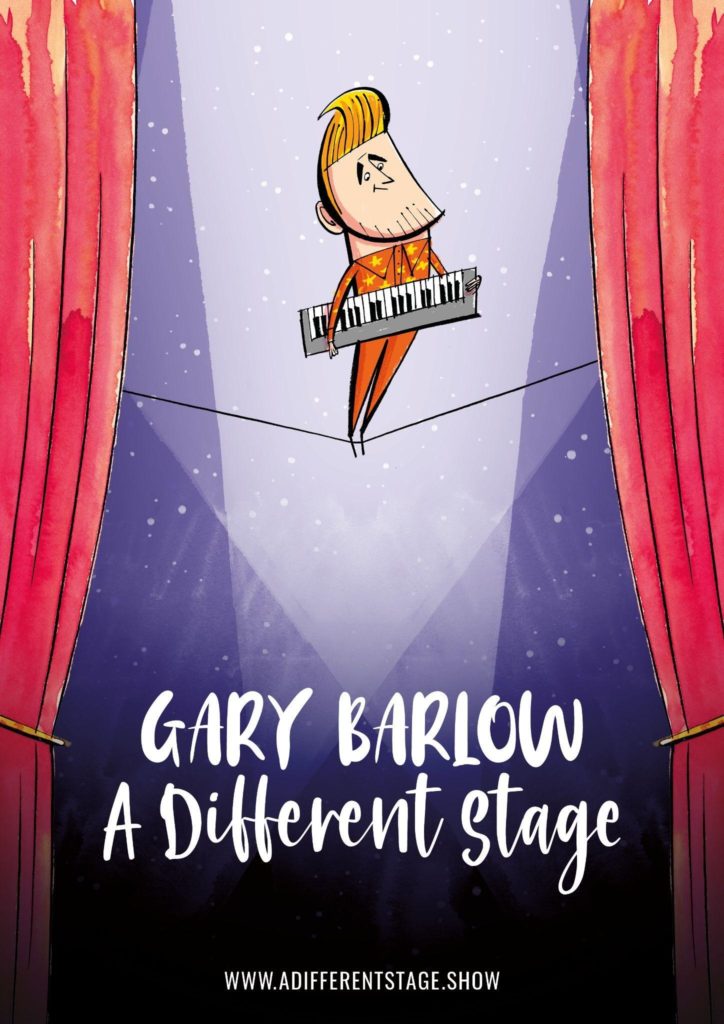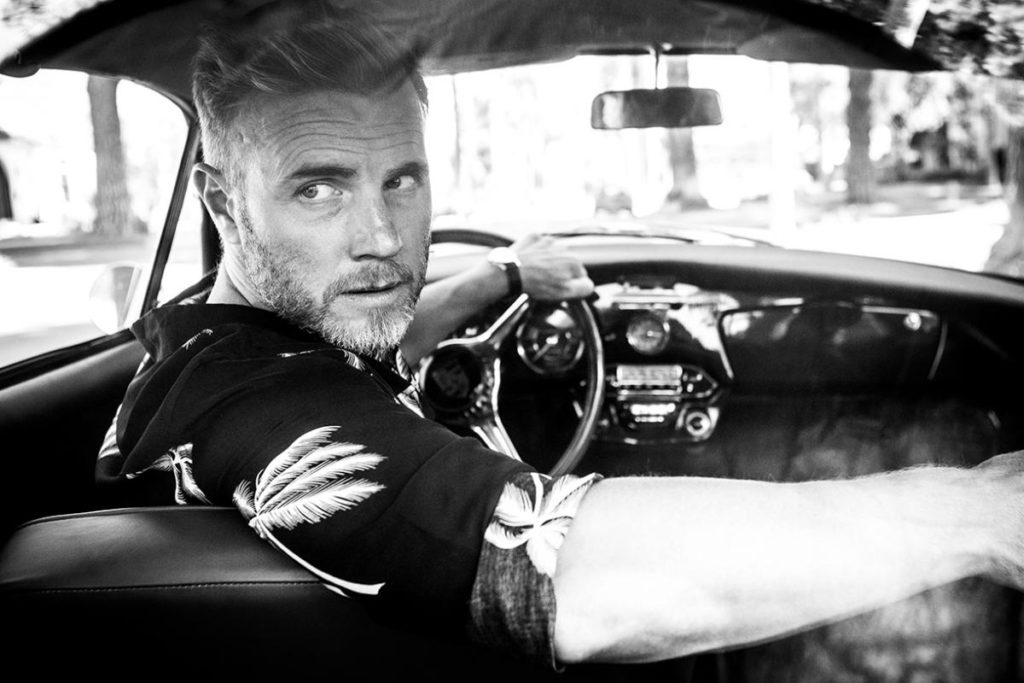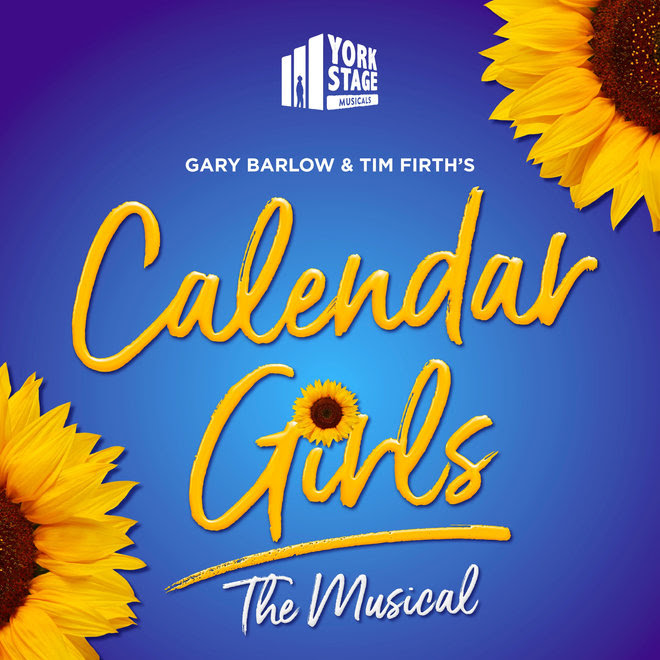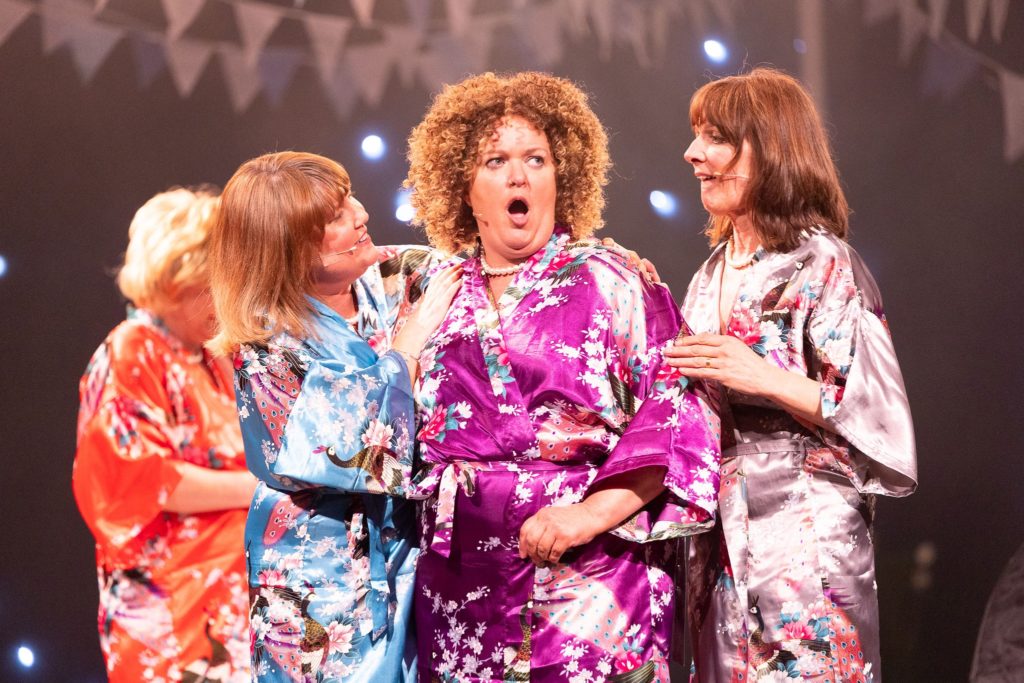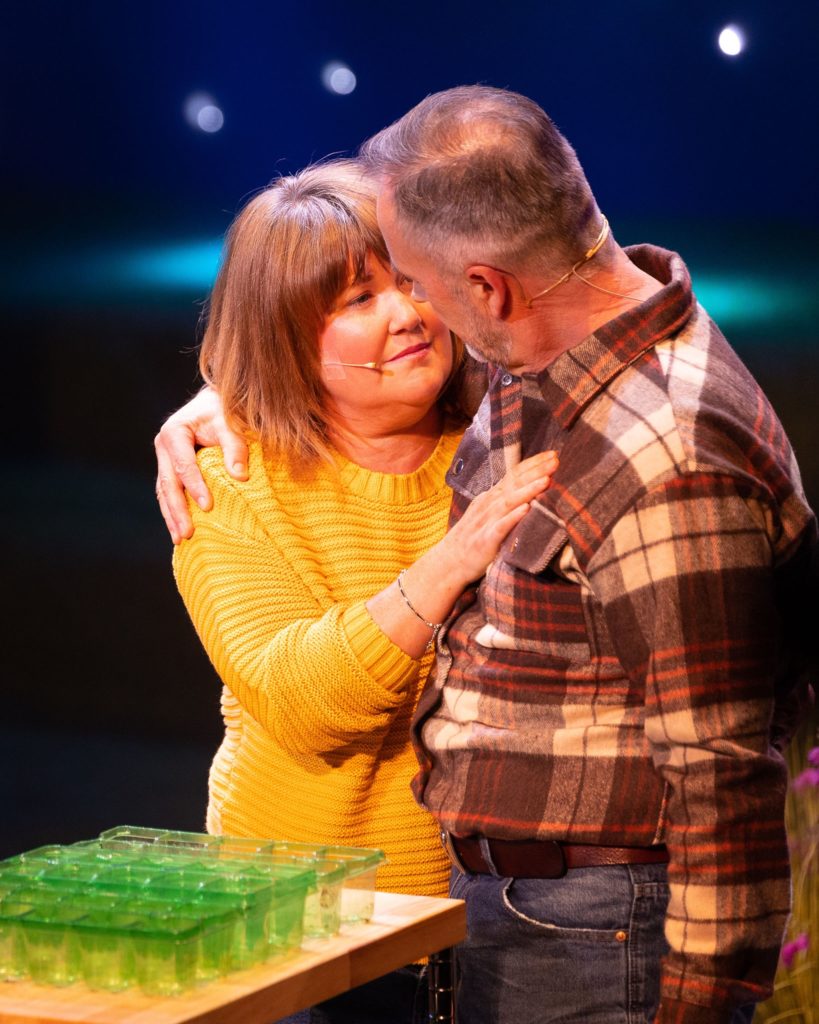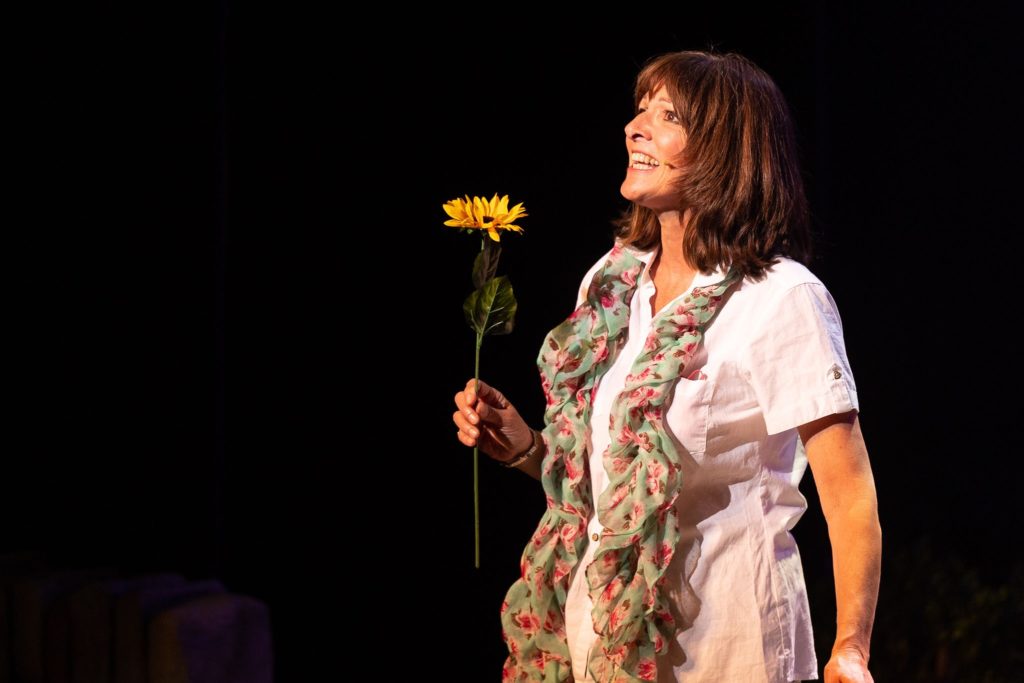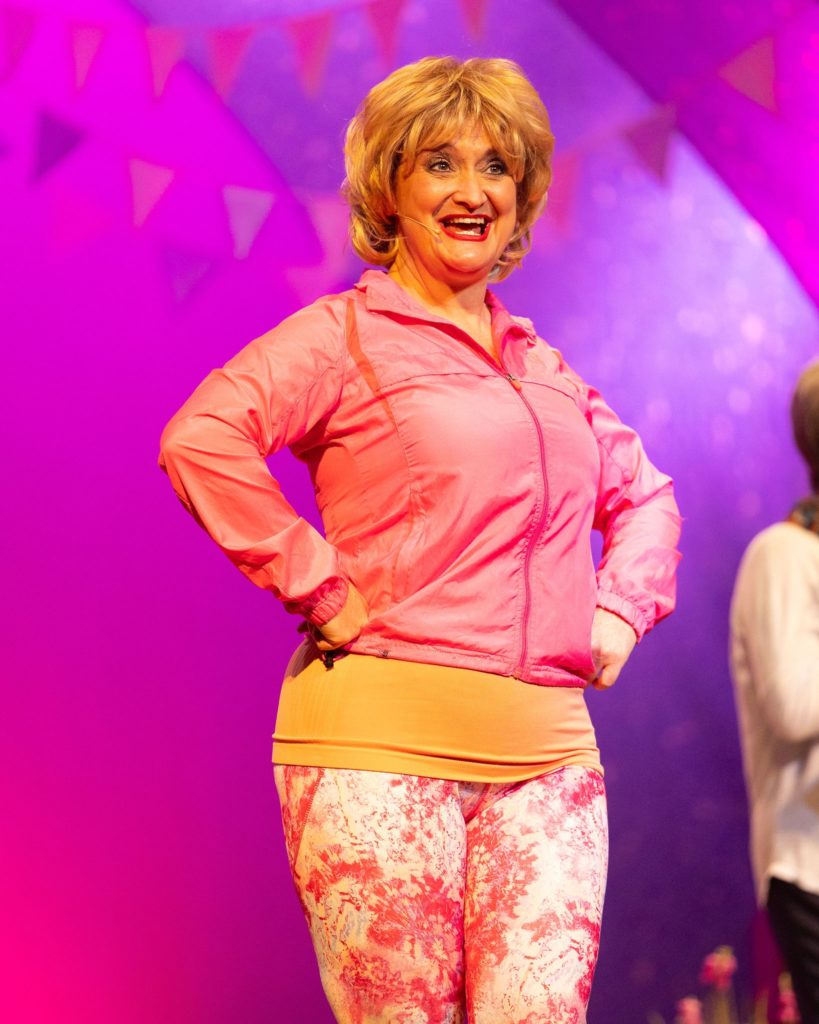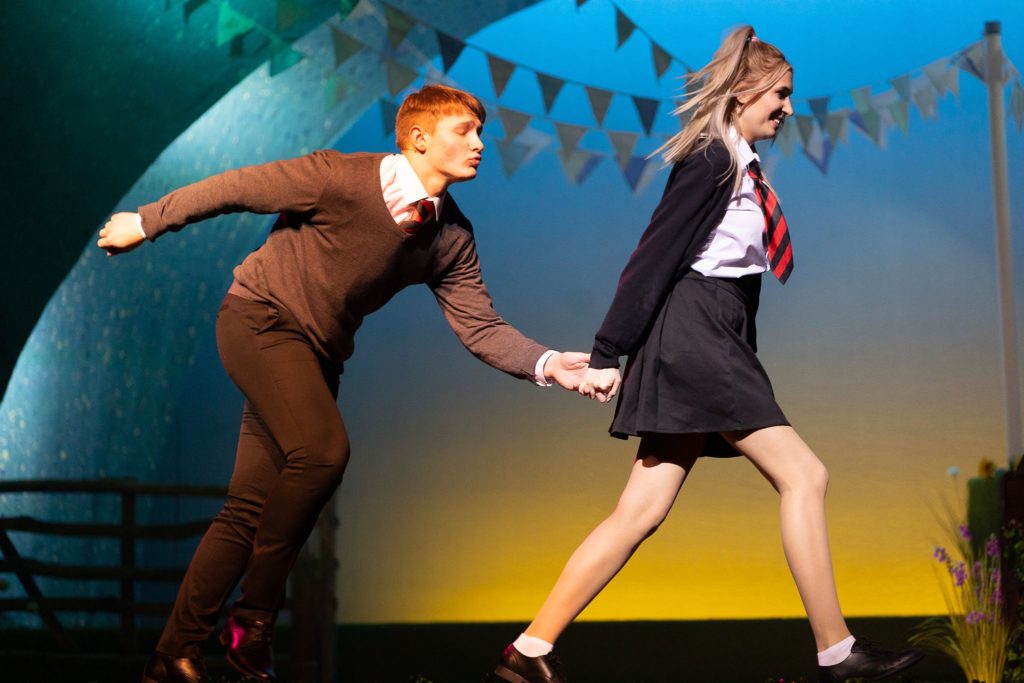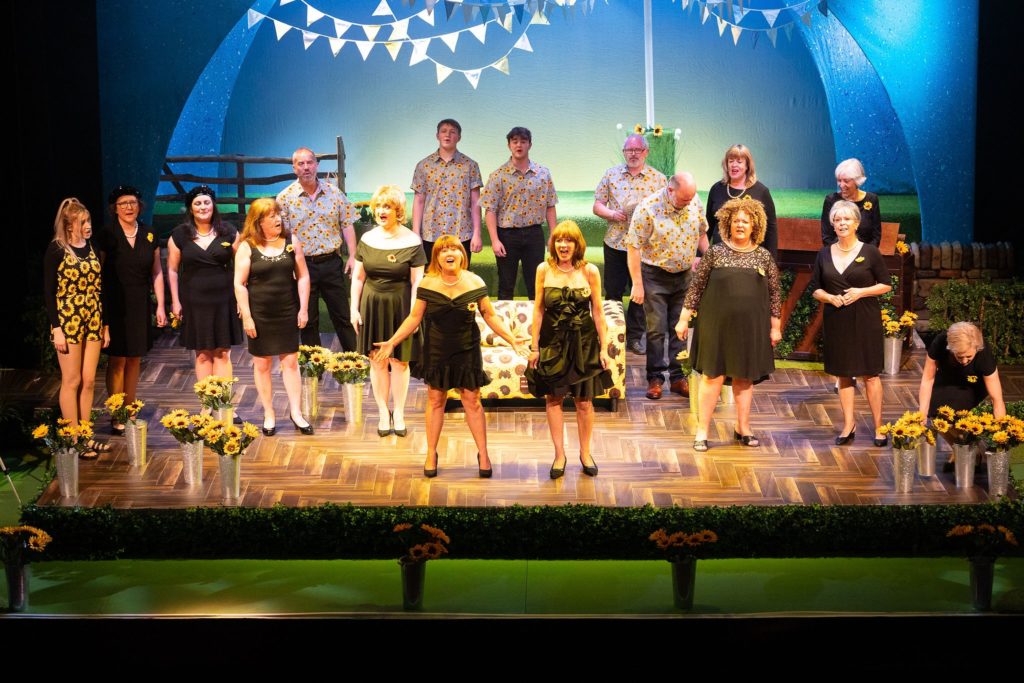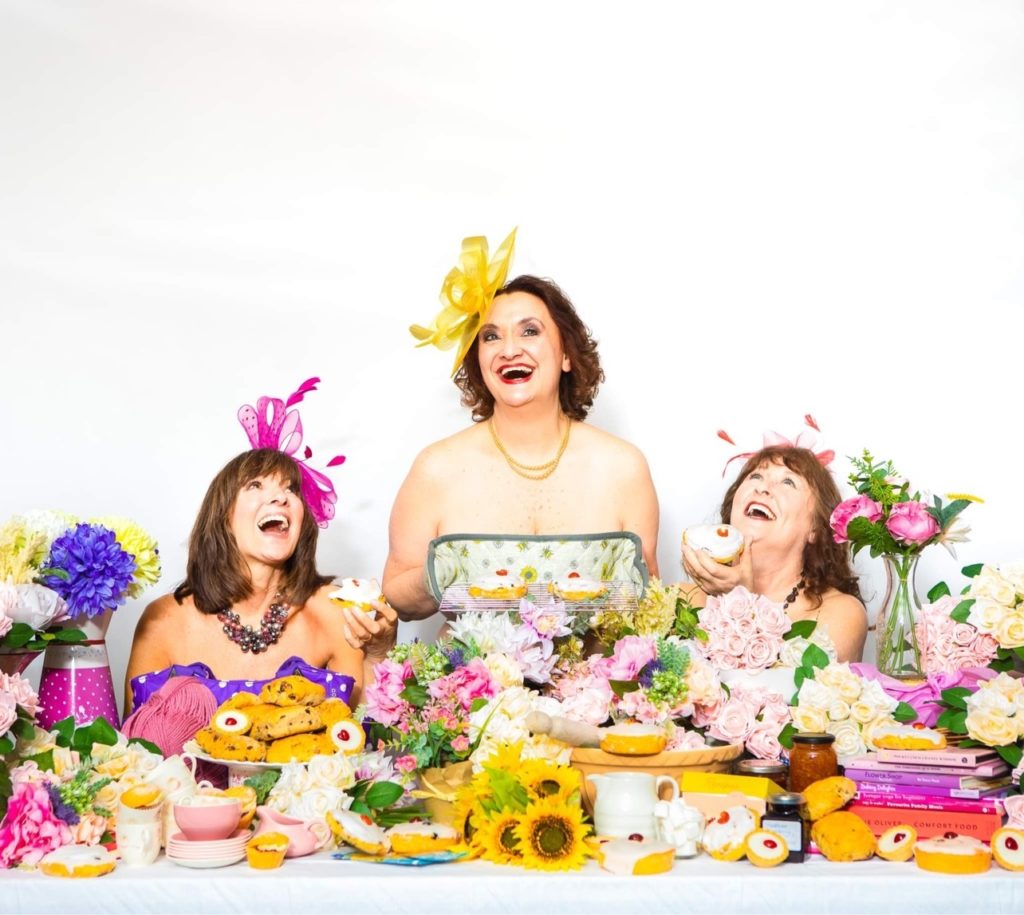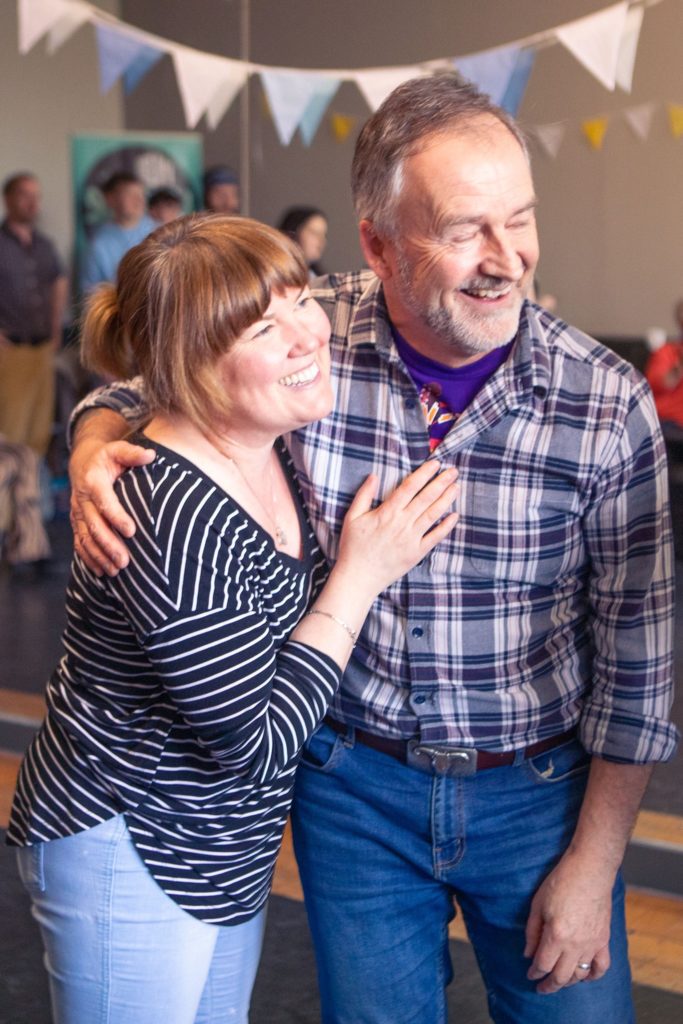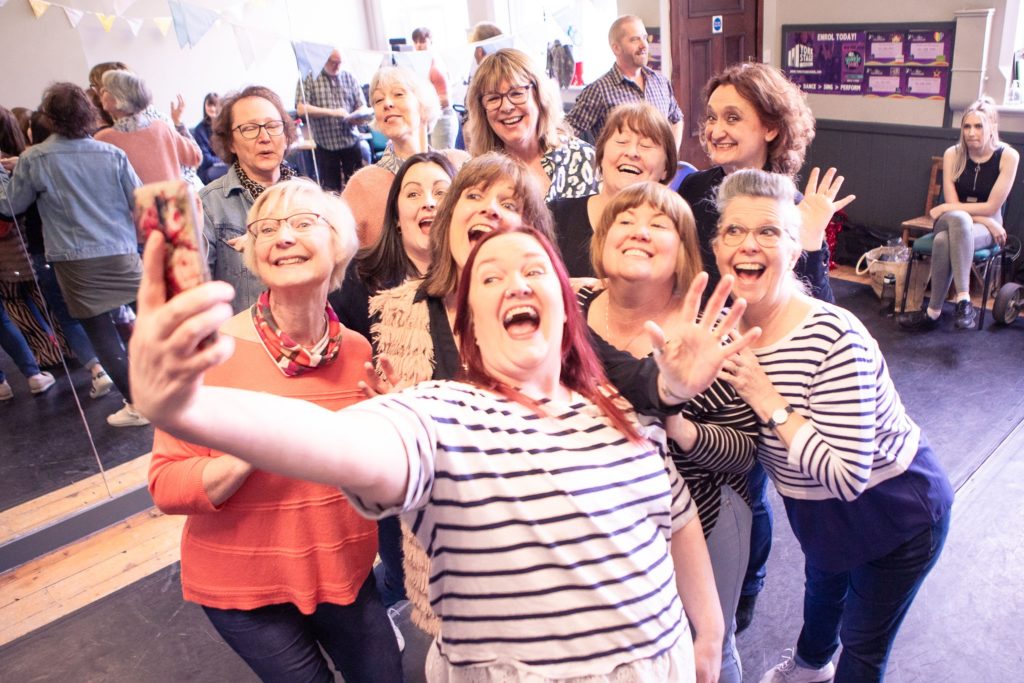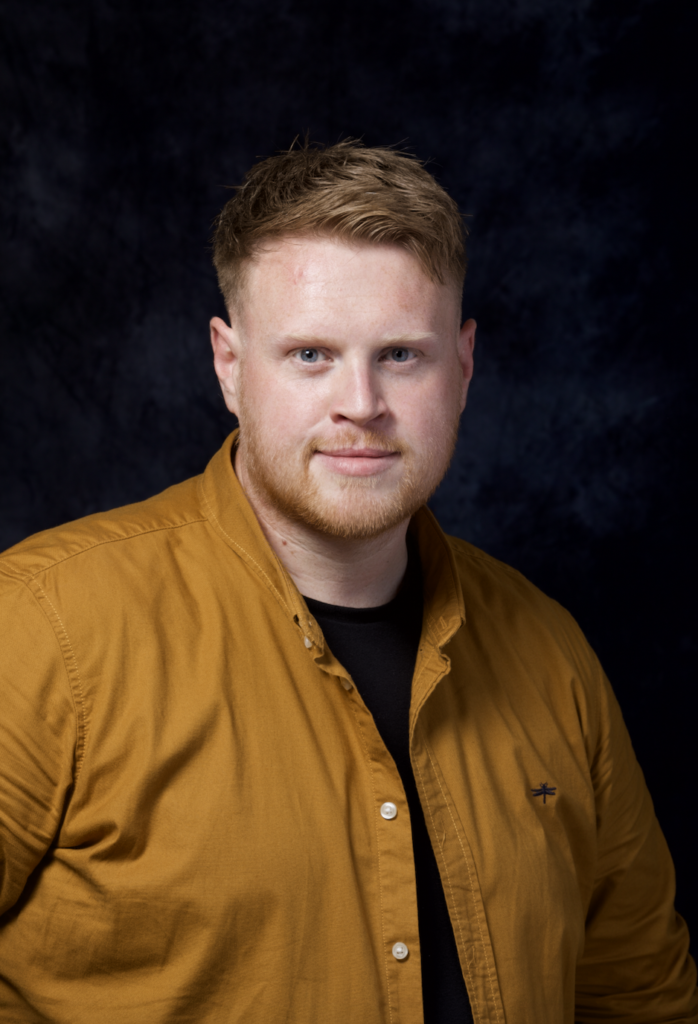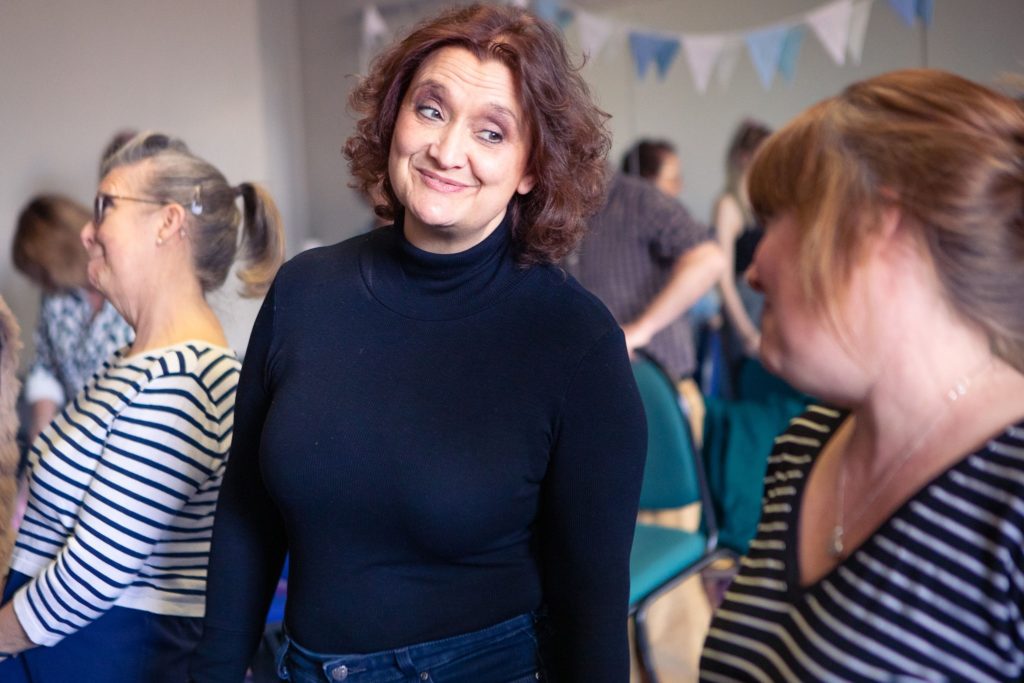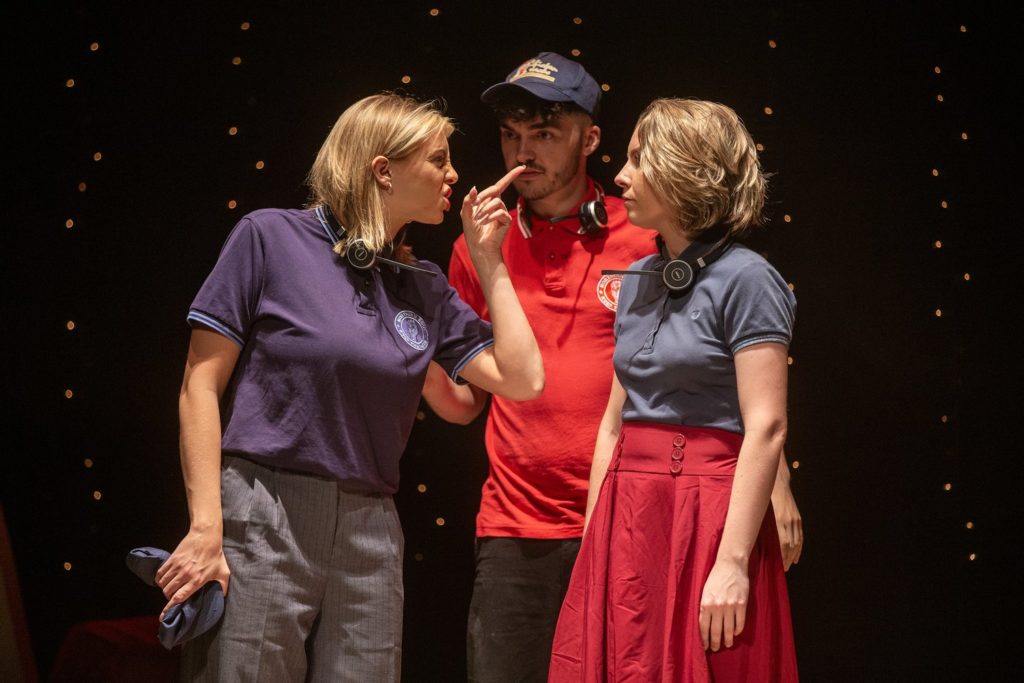
Making her point: Martha Godber’s Sally, left, in a contretemps with Chloe McDonald’s Nat as Emilio Encinoso-Gil’s Kyle seeks to intervene in John Godber’s Do I Love You?
CELEBRATIONS of Northern Soul and British comedy greats are right up Charles Hutchinson’s street for the week ahead.
Weekender of the week: John Godber Company in Do I Love You?, York Theatre Royal, until Saturday, 7.30pm plus 2pm Thursday and 2.30pm Saturday matinees; post-show discussion on June 13
THE John Godber Company is on its third tour of John Godber’s hymn to keeping the faith in Northern Soul, with the same cast of Martha Godber, Chloe McDonald and Emilio Encinoso-Gil.
Inspired by Godber’s devotion to Northern Soul, Do I Love You? follows three twentysomethings, slumped in the drudgery of drive-through counter jobs, who find excitement, purpose and their tribe as they head to weekenders all over, from Bridlington Spa to the Blackpool Tower Ballroom, Chesterfield to Stoke. Box office: 01904 623568 or yorktheatreroyal.co.uk.

The fez, the spectacles and the bow tie: Damian Williams’s Tommy Cooper, Bob Golding’s Eric Morecambe and Simon Cartwright’s Bob Monkhouse in The Last Laugh, on tour at the Grand Opera House, York
Comedy legends of the week: The Last Laugh, Grand Opera House, York, until Saturday, 7.30pm plus 2.30pm matinees today, tomorrow and Saturday
WHO will have The Last Laugh at the Grand Opera House when British comedy triumvirate Eric Morecambe, Tommy Cooper and Bob Monkhouse reconvene in a dressing room in Paul Hendy’s play?
Find out in the Edinburgh Fringe, West End and New York hit’s first tour stop as Bob Golding, Damian Williams and Simon Cartwright take on the iconic roles in this new work by the Evolutions Productions director, who just happens to write York Theatre Royal’s pantomimes too. Box office: atgtickets.com/york.

One of the Famous Faces on show in the Artistic Spectrum exhibition at Pocklington Arts Centre
Exhibition of the week: Artistic Spectrum: Famous Faces, Pocklington Arts Centre, on show until June 27
BOLD artworks feature in Famous Faces, a powerful, large-scale portrait project from Artistic Spectrum, co-created with more than 100 neuro-divergent and Special Educational Needs children and adults across East and South Yorkshire to challenge perceptions, champion inclusivity and put the power of representation into the hands of those too often left out of the frame.
Developed in group workshops over several weeks, participants created striking portraits of people who inspired them, from musicians and sports stars to activists and screen icons, using collage, found materials and personal objects to make works rich with texture, colour and personal meaning.
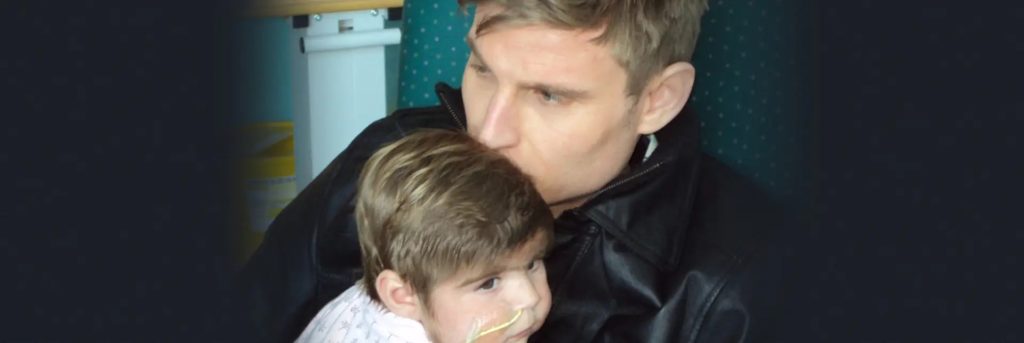
Comedian Scott Bennett and his daughter in the promotional picture for Blood Sugar Baby, on tour in York and Pocklington
Storyteller of the week: Scott Bennett, Blood Sugar Baby, Theatre@41, Monkgate, York, tonight, 8pm; Pocklington Arts Centre, August 6, 8pm
ONE family, one condition, one hell of a hairy baby: Scott Bennett, from The News Quiz, relates how his daughter fell ill with a rare genetic condition, congenital hyperinsulinism (CHI).
Never heard of it? Neither have new parents Scott and Jemma as they fight to achieve the right diagnosis for their daughter and are plunged into months of bewildering treatment, sleepless nights, celebrity encounters and bizarre side effects, but a happy ending ensues. Box office: York, tickets.41monkgate.co.uk; Pocklington, 01759 301547 or pocklingtonartscentre.co.uk.
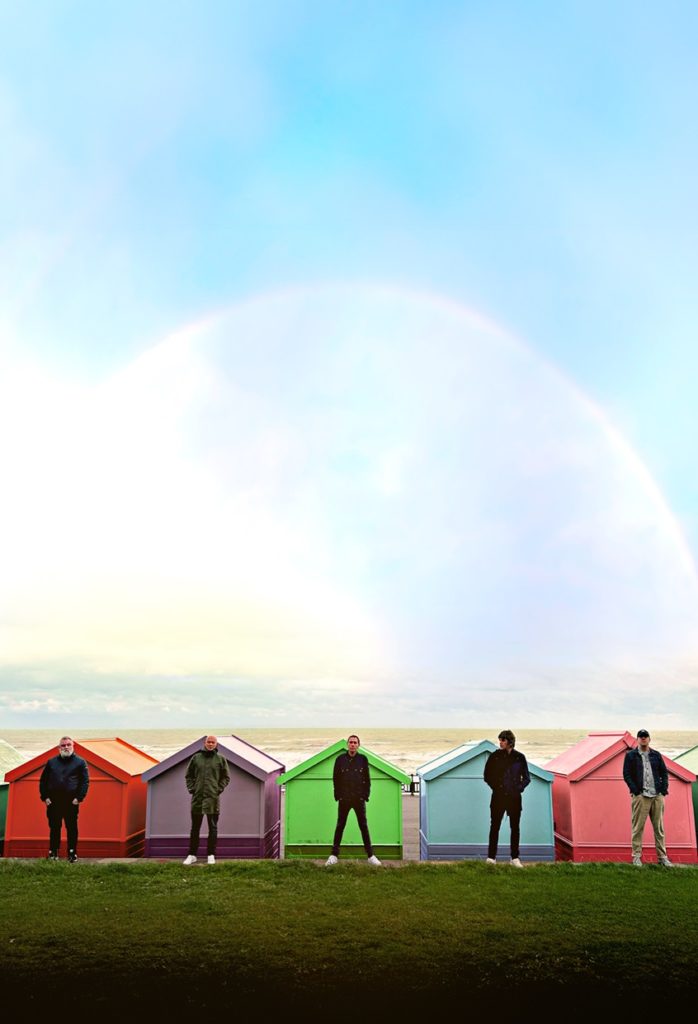
Shed Seven: Off to the Yorkshire coast on Saturday to play Scarborough Open Air Theatre
Coastal gigs of the week: The Corrs and Natalie Imbruglia, tonight; Gary Barlow and Beverley Knight, Friday; Shed Seven, Jake Bugg and Cast, Saturday, all at Scarborough Open Air Theatre; gates open at 6pm
THE 2025 season of Cuffe & Taylor concerts in the bracing sea air of Scarborough opens tonight with the Irish band The Corrs and Australian singer and Neighbours actress Natalie Imbruglia, followed by Take That and solo songwriter and The X Factor and Let It Shine judge Gary Barlow on his Songbook Tour 2025 on Friday, when Beverley Knight supports. Expect hits from both his band and Barlow back catalogues.
After two chart-topping 2024 albums in their 30th anniversary year, York band Shed Seven make their belated Scarborough Open Air Theatre debut on Saturday, supported by Jake Bugg and Cast. Box office: scarboroughopenairtheatre.com.
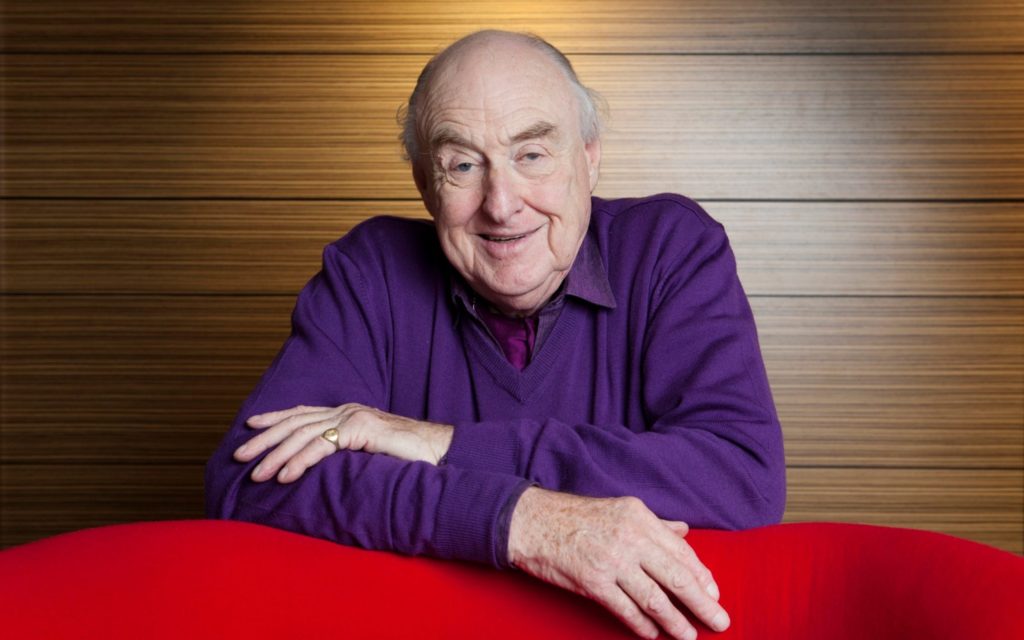
Henry Blofeld: Wickets and wit in cricket chat at Helmsley Arts Centre
The sound of reporting on leather on willow: An Audience With Henry Blofeld, Sharing My Love Of Cricket, Helmsley Arts Centre, tomorrow, 7.30pm, rearranged from March 21
LEGENDARY BBC broadcaster and journalist, Henry Blofeld, former stalwart of the BBC’s Test Match Special commentary box, takes a journey through modern cricket, while looking back at the great games of yesteryear.
Blowers reflects on how cricket used to be and where it is headed: the theme of his September 2024 book Sharing My Love Of Cricket: Playing The Game And Spreading The Word, wherein he explores the big shifts, innovations and challenges facing the game. Box office: helmsleyarts.co.uk.
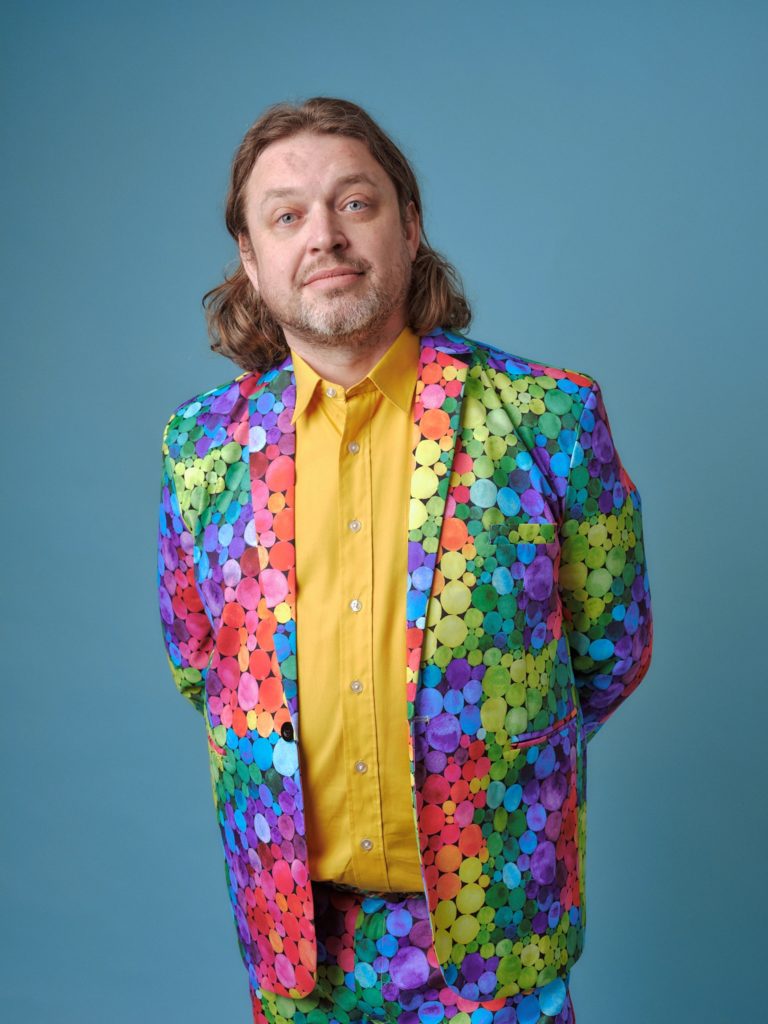
Saul Henry: On the Funny Fridays bill at Patch at the Bonding Warehouse, York
York comedy bill of the week: Funny Fridays at Patch, Bonding Warehouse, Terry Avenue, York, Friday, 7.30pm
THE second Funny Fridays comedy night at Patch features Saul Henry, Gemma Day, Ethan Formstone, Lucy Buckley and headliner Jack Wilson, hosted by founder and comedian Katie Lingo.
Formstone’s profile reveals he is a bricklayer from York, who grew bored and now, “using his natural stage presence and wild imagination, lays surreal stories that will delight you and leave you slightly confused”. Tickets: eventbrite.co.uk/e/funny-fridays-at-patch-tickets-1353208666549?aff=oddtdtcreator.
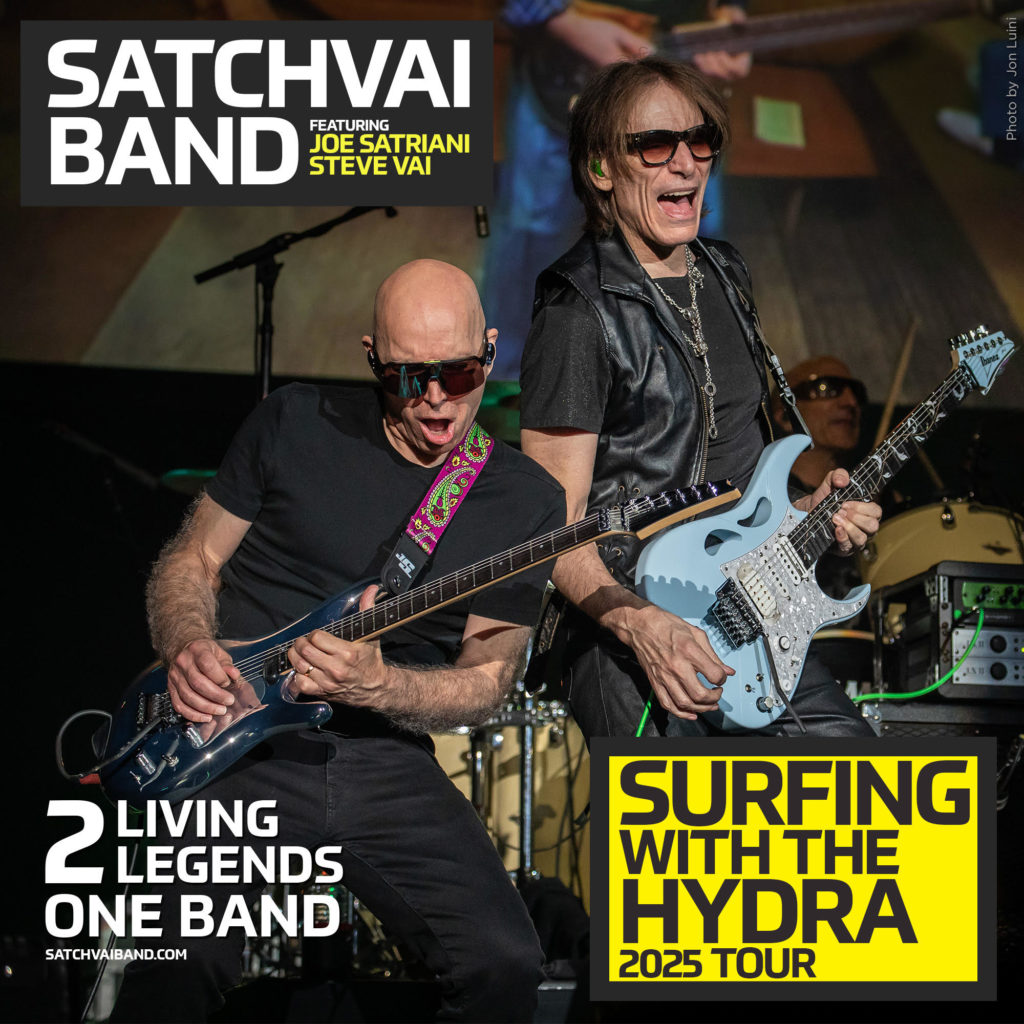
The poster for the SatchVai Band’s Surfing With The Hydra Tour, visiting York Barbican on Friday
Rock gig of the week: SatchVai Band, Surfing With The Hydra Tour 2025, York Barbican, Friday, doors 7pm
FOR the first time in nigh on 50 years of playing rock, guitarists and friends Joe Satriani and Steve Vai have united to tour as the SatchVai Band, opening their European travels in York before heading to London, Paris, Copenhagen, Amsterdam, Istanbul and Athens.
Powerhouse drummer Kenny Aronoff, bassist Marco Mendoza and virtuoso guitarist Pete Thorn complete the stellar quintet. Box office: for returns only, yorkbarbican.co.uk.
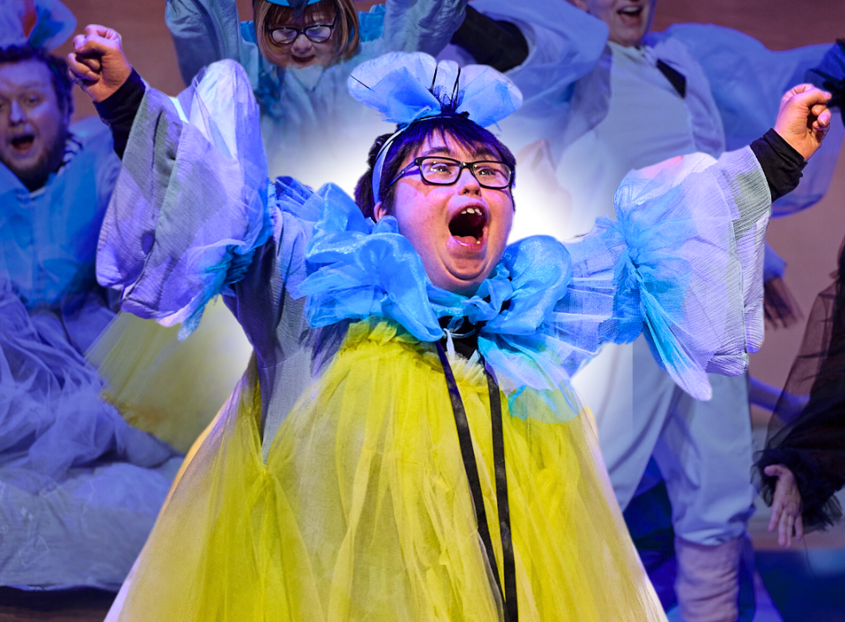
Alex telling her story in EGO Arts’ You Know My Mum at Theatre@41, Monkgate, York, on Friday
Cheeky comedy of life, loss and love for all the family: EGO Arts in You Know My Mum, Theatre@41, Monkgate, York, Friday, 7.30pm.
LEADING EGO Midlands Creative Academy’s disabled and neuro-divergent cast, Alex is a 25-year-old woman with Down’s syndrome struggling with the death of her mum. One day, she discovers Bluey, a baby Blue Tit, in her garden.
While Bluey learns about fried chicken factories and joins a boot camp for birds, Alex battles Harry Potter monsters and dreams about life after death. As her wild imagination comes to life, she learns that the love she thought she lost is all around her. Box office: tickets.41monkgate.co.uk.

